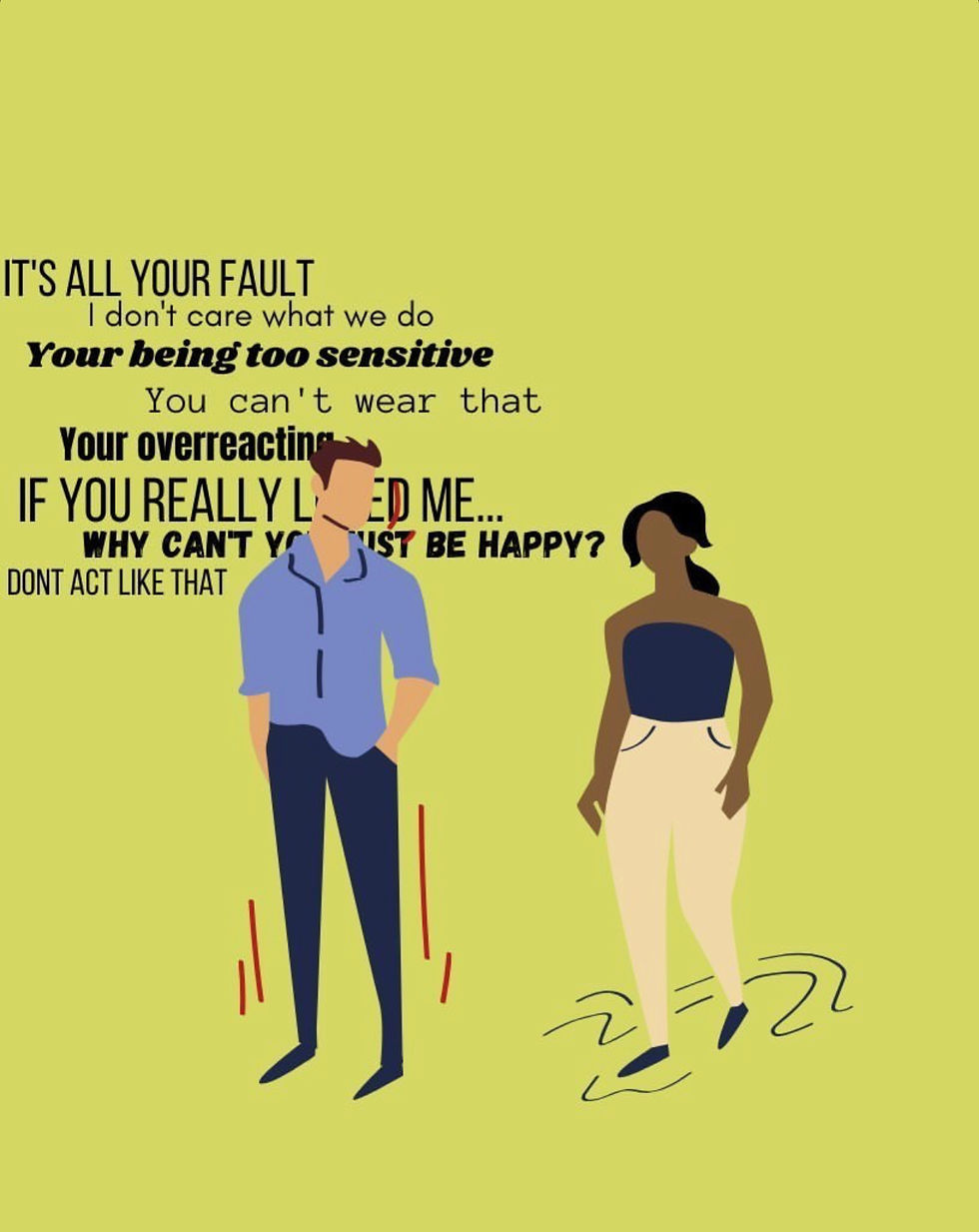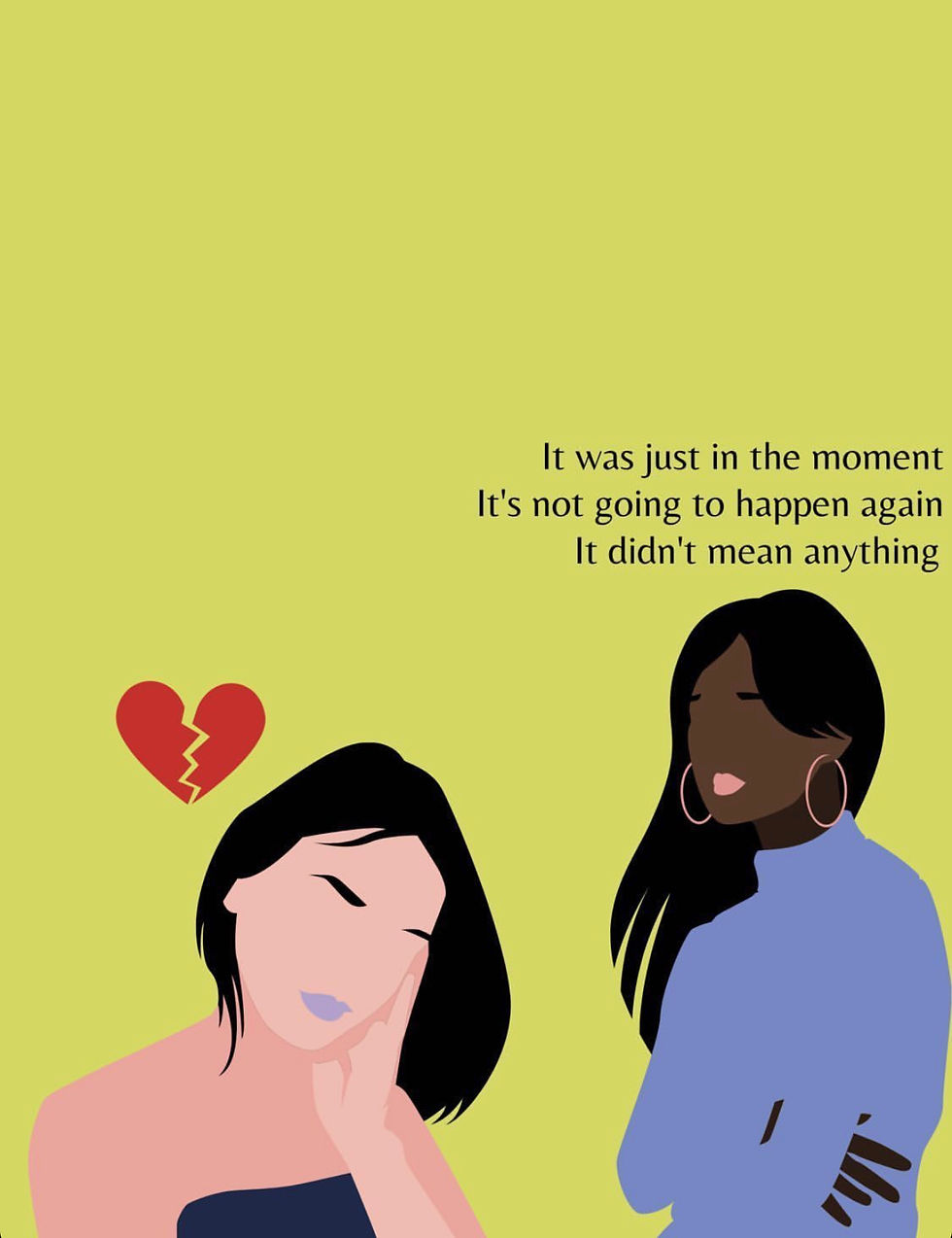Abusive Relationships
- TeenToTeen

- Jun 26, 2020
- 6 min read
Updated: Jun 28, 2020
For many, finding love and entering new relationships is a large part of the teenage experience. We see attractive peers at school or at the mall only to mentally plan a life with them. Getting your first significant other can feel like a rite of passage, finally entering a more mature world. We gain a sense of validation and enjoy a new form of attention. We fall head over heels and begin romanticizing everything our partners do. Young love can be sweet and kind, as well as fun and empowering. However, young love can also be foolish and heartbreaking. We can date whoever and however many people we want until we find what we're looking for, but who really knows how long that can take? Regardless of how many dates you go on in your lifetime, it is extremely important to be able to identify healthy and unhealthy behaviors within relationships. Abuse comes in many forms; it can be explicit, or it can be gradual and subtle. A seemingly harmless thing can turn into an unhealthy circumstance in an instant.

Physical Abuse
When getting into a relationship, no one’s first thought is that their partner will intentionally hurt them, but feelings of dependency and attachment make people stay even when they do. Physical abuse is one of the most obvious red flags in a relationship; there is never a reasonable way to justify physical abuse. The CDC says that about 9% of teenagers experience physical violence with a romantic partner each year. This situation becomes extremely difficult for those who live with their abuser to get out of. Factors like financial instability and tattered self-esteem make “just leaving them” harder than one would think. Even when individuals do leave, it doesn’t always guarantee safety. The post-breakup period is actually the most dangerous in an abusive relationship. Women are 70 times more likely to be killed during the following weeks after leaving their abuser.
Leaving can be dangerous and scary but there are safe ways to remove yourself from the relationship.
Involving a third party and establishing code words can be extremely helpful. Tell a friend, family member, co-worker, or neighbor about your situation and create code words or phrases to signal when you are unsafe. This third-party can look out for your well being and reach out for help if it's too dangerous to you to do so on your own.
Understanding your partner's red flags are also very important. Being able to identify when they are getting upset or when they will become violent is something you can use to your advantage. Come up with reasons that you have to leave the house, or try sneaking out when you sense your partner will lash out.
Identify safe spaces within your house and near it. Avoid enclosed spaces without easy access to an exit if you are caught in an argument. Establish which friends you can stay with and which family members’ houses you can go to if you need to escape your environment. Becoming familiar with shelters nearby is also important; they can provide a place to stay as well as resources in a worst-case scenario.
Emotional and Verbal Abuse
Abusers will subject their significant others to hyper criticism that will constantly put them down. They project their own insecurities onto their partners. This creates an authoritative position for the abuser, making it easier to control their partner. Abusers will also blame their partners when things don’t go their way. Another thing seen in unhealthy relationships is unreasonable jealousy; abusers will become upset if their partner is getting attention from other people. They will monitor who you see and talk to for their own comfort. Abusers will poke at your loyalty and question your faithfulness.
It’s important to be aware of the different means of manipulation.
Love bombing is a very subtle form of emotional manipulation. The term was first coined in the 1970s, and in recent years, psychologists have applied it to troubling behaviors seen in romantic relationships. Love bombing is used to encourage obedience and loyalty; in these situations, the bomber showers you with affection and attention, which doesn’t initially come across as problematic. The excess affection is where things go wrong. A love bomber will bombard you with gifts and compliments extremely early in the relationship, as well as discuss weddings and future kids’ names long before you are ready to have those conversations. This may seem sweet at first but it quickly becomes unwarranted and unrelenting. Love bombers are extremely desperate for relationships and feel like they need someone to fill up their emptiness, so they form dependent bonds and unhealthy attachments that can lead to obsessive and stalking behavior. Dating a love bomber rarely ends well because they become angry or act hurt when their partner doesn’t return the extreme attention and affectionate behavior. Love bombers are usually narcissists and refuse to acknowledge their faults, when the victim of the bombing wants to leave, the love bomber will shame them. The bomber will guilt their partner about feeling overwhelmed and smothered, bringing up all of the things they have said or done for their partner as a means to make them feel bad for their discomfort.
Gaslighting is another form of emotional manipulation and abuse. Gaslighters force others to question their own feelings, thoughts, actions, and even sanity. They understand your insecurities, sensitivities, and vulnerabilities, and then try to use it against you. They’ll force you to doubt your own judgment and choices. People who are constantly gaslighted in their relationships tend to constantly apologize, blame themselves when things go wrong, excuse their partner's bad behavior, and invalidate their own emotions. Gaslighters will tell their partner untrue rumors about themselves, crave attention, trivialize their partner’s feelings, and say or do things that they will later deny. Like love bombers, these manipulators are usually narcissists.
Gradual Abuse
Unhealthy behaviors can begin subtle and unalarming. Occasional yelling or intentional disregard leads to threats, which grows into action, and turns into ugly cycles of bad behavior and irrational justification. Someone outside of the relationship may be able to identify red flags quicker than the victim in the relationship because the victim’s love for their partner clouds their judgment. No one wants to think that the person they love is bad for them, and this denial hides the true mistreatment.
There are many reasons some teens may stay with their toxic partners.
Tarnished self-esteem comes from constant criticism, judgment, and ridicule, where people begin to lose confidence. Especially if a relationship is heavily built on dependency, victims lose their sense of self and gain self-esteem issues. Victims happen to downplay abuse and mistreatment, especially in cases where the abuse isn’t physical. It's hard for people to leave their abusers when they've been made to feel worthless and insecure. Victims feel like there is no better option than to stay, and abusers make victims feel like no one else will want them if they leave.
Idealization of ‘ride or die’ culture encourages someone to stay with another person regardless of whether they’re happy or not. They’re taught to forgive and forget, or ‘ride it out,’ regarding the issues in the relationship. This mindset perpetuates the idea that staying with someone in any circumstances is admirable. Manipulative and abusive partners will take stabs at your loyalty to make you feel guilty for wanting to leave the relationship. It’s important to remember that you don’t owe undying loyalty or justification for your choices to someone who doesn’t prioritize your feelings or your well being.
Cycles of honeymoon phases and hopes of changed behavior occur when abusers lash out at their partner, then follow with an apology or nice act. Abusers promise they will never do what they did again, and to do better, while they’re really rationalizing and justifying their behavior. But when a victim accepts their apology, it diminishes the feeling of the initial abuse. Continuous apologizing and constant acceptance makes identifying abuse difficult for the victim. Victims start to normalize their unhealthy treatment, and then they stay because they have hope that their partner will change.

Stepping Away from Unhealthy Relationships
In order to safely leave an unhealthy relationship, start off by not excusing or dismissing abusive behavior. If it is not safe for you to actively call out your partner, make a mental note of it, or jot it down somewhere private. Stop rationalizing mistreatment and acknowledge the behaviors of the abuser. Reach out to others in your life that can support you and provide assistance in this endeavor, because it’s important to remember that you are not alone. If it is safe, express your concerns; explain why you are unhappy, and why you want to leave the relationship. Expect that your abuser will try to make you feel guilty and manipulate you into staying. They might claim that they act out because of the things that you do and try to justify their behavior by placing fault on you. Realize that you are not responsible for someone else's actions, and remind yourself that you are not at fault.
Taking the step to leave an unhealthy relationship can be intimidating, but you are stronger than they make you feel. You deserve more than what they can give you. Sometimes we refuse to see how bad something is for us until it completely destroys us; don’t wait until it reaches that point. It’s better to break your own heart by leaving an abusive relationship, rather than letting your partner break it everyday.
Name: Nathalia Ramkissoon
Editor: Katelyn Clark
Graphic Designer: Sadie Honchock



Comments